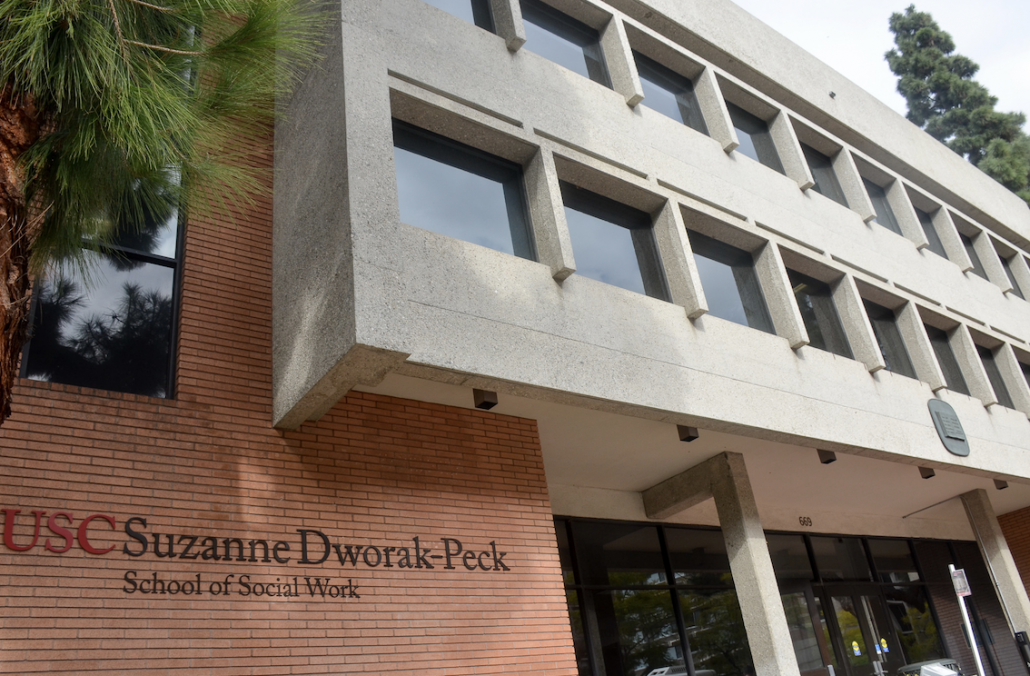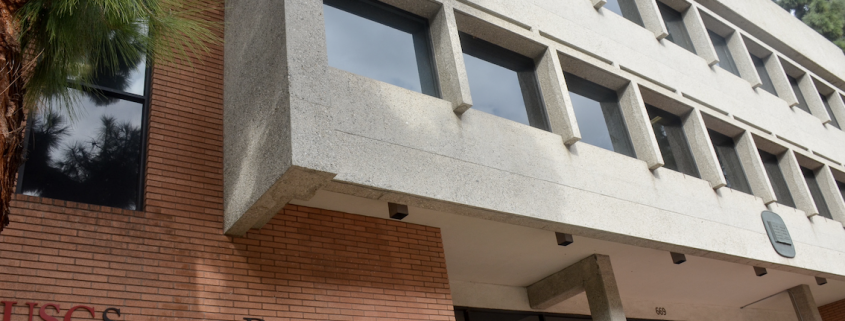Professor leaves quietly amid controversy, lawsuit

Erick Guerrero, a former USC assistant professor who was placed on probation in Fall 2018 following an investigation of his alleged sexual harassment of a student, is no longer employed at the University as of Nov. 20, 2018, University Media Relations confirmed to the Daily Trojan.
Guerrero’s lawyer Mark Hathaway said Guerrero, who was an assistant professor at the Dworak-Peck School of Social Work resigned from the University. The Daily Trojan could not confirm this with USC.
In October 2017, graduate student Karissa Fenwick filed a lawsuit against USC and Guerrero, accusing him of sexually harassing her in his hotel room during an academic conference. Guerrero also filed a libel lawsuit in October 2018 against 72 professors from the School of Social Work who publicly condemned him after the sexual harassment allegations surfaced.
Hathaway and University Media Relations declined to comment on the status of the libel lawsuit.
Fenwick said she was informed of Guerrero’s departure from USC through “underground gossip” rather than an official message from the University. While Fenwick said she understands the University must be careful with the information it releases concerning Guerrero due to the lawsuits at hand, she said that she and other students should have been informed that Guerrero would no longer be present on campus.
“I would imagine that they could at least release something saying that he is no longer on the faculty [so] that students know that, because it wasn’t just me who became fearful seeing him around,” Fenwick said.
Fenwick’s lawyer John Winer said he did not know why the University has not Guerrero’s departure publicly commented.
“They owe it to Karissa to inform her, to let her feel safe and comfortable being on campus, and they haven’t done that because they won’t announce anything,” Winer said. “They’re keeping everything for some reason confidential.”
Fenwick was also a student member of a Sexual Harassment Task Force assembled in Fall 2017. Students, faculty and staff on the task force compiled a 49-page report with recommendations to improve the School of Social Work’s policies, procedures and communication regarding issues of harassment and discrimination.
But she said she hasn’t received many updates on the progress of the recommendations since the task force submitted its report in Spring 2018.
“Many of us have been wondering what is happening with those, when are they being implemented and how,” Fenwick said. “It seems like the school just wants the whole thing to fizzle out, which I guess I can understand from their perspective, but it’s unsettling I think from some of ours.”
Carl Castro, an associate professor at the School of Social Work,who was also part of the task force, said changes have already begun, but communication was more consistent before the task force dissolved last spring. Back then, he said updates were routinely provided via email and on the task force website.
“I just think we need a school-wide and University-wide campaign of communicating changes,” Castro said. “You can’t just say it once, you’ve got to say it multiple times, in multiple ways, in multiple venues.”
Tory Cox, assistant dean of field education at the Virtual Academic Center, also worked on the Sexual Harassment Task Force. Cox served as a co-chair for the Steering Committee, which guided the Environmental Culture Workgroup, Policy Workgroup and Assessment Workgroup. He also served as a liaison between the groups.
Cox said that in preparation for the Fall 2019 semester, the School of Social Work updated its guidelines in business agreements with field organizations that graduate students work with to complete their required internship hours. These changes included measures to make students aware of harassment and discrimination policies at these internships and inform them on how to file a complaint.
He said field instructors, who supervise students during internships, also received training, which includes live sessions and a 30-minute video about the University’s expectations for harassment and discrimination policy and reporting.
“We’ve done a nice, really thorough circle of what it takes in the field environment to make sure all parties are well-informed and that the process for filing a complaint is clearly delineated,” Cox said.
Cox said these changes seemed necessary in light of recent sexual harassment allegations made on campus and complaints students made regarding their internships.
“We have students in every state doing internships, so the more spread out you get, the more important your policies and expectations are … so that agencies know where you’re coming from as an institution,” Cox said.
Cox said the School of Social Work also sent out a school climate survey in January that included questions on sexual harassment and discrimination for students, faculty and staff. Its results are currently being compiled and will be used to identify more key issues the school must address.
The School of Social Work faculty also voted to add six extra pages to its Faculty Guidebook on sexual harassment and discrimination policies, which is waiting on University approval, according to Castro.
“The idea of culture change is an important thing to recognize, that this is what the effort of the task was, to make sure that what had taken place previously would not take place again,” Cox said.
Guerrero could not be reached for comment at the time of publication.

